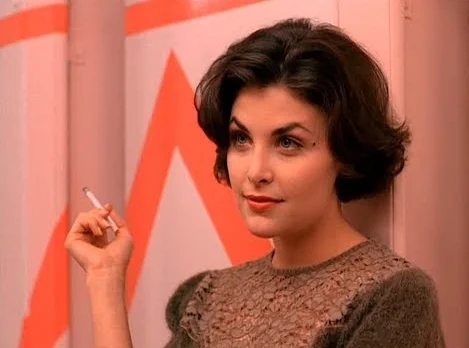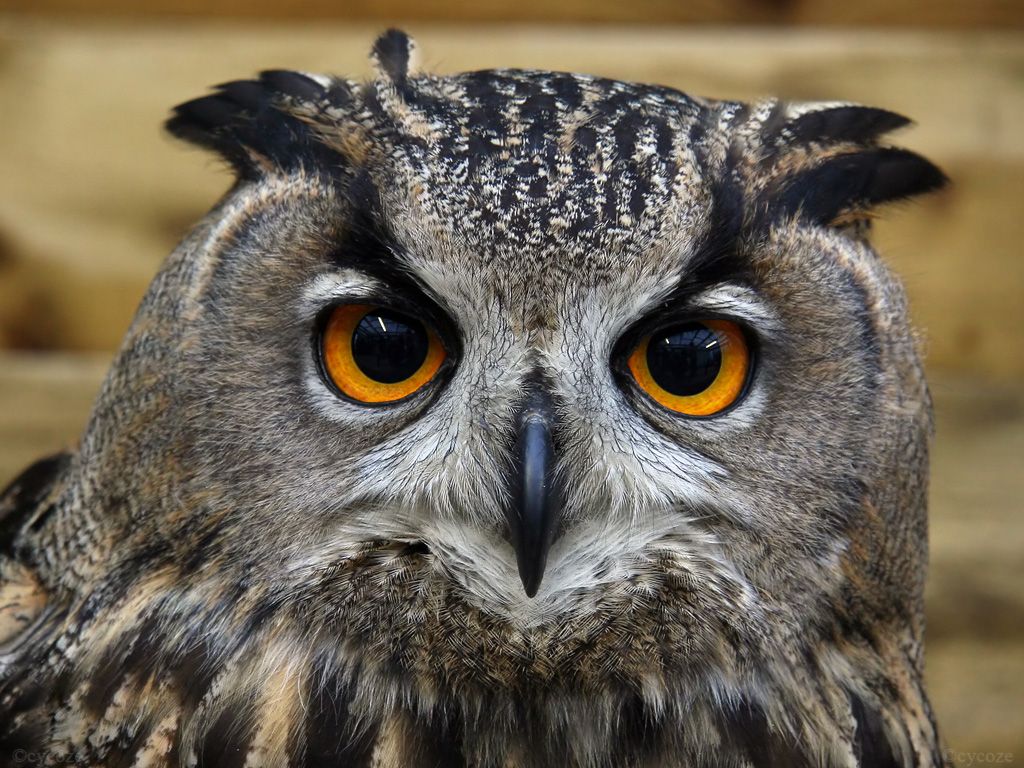By The Landlord
"My log saw something that night. ... Why don't you ask it?" – Margaret Lanterman, aka the Log Lady, Twin Peaks
“Everything we see hides another thing, we always want to see what is hidden by what we see.” – René Magritte
“I realised that the imagery in my mind wasn't insanity. Surrealism to me is reality.” – John Lennon
“Surrealism is destructive, but it destroys only what it considers to be shackles limiting our vision.” – Salvador Dali
“In our wings that bark / Flashing teeth of brass / Standing tall in the dark. / Oh, and we were gone, Hanging out with your dwarf men, / We were so turned on.” – David Bowie, The Bewlay Brothers
Biscuit. Goloshes. Parrot. Bicycle. Chocolate. Fish. Balloons. Things are taking a strange turn today. Why? Well, why not? One reason is that, entrenched as most of us normally are in the heavy duties of work, or family, money, routine, health concerns, as well as the onslaught of bad news, political incompetence and general mismanagement at large, it is healthy to escape all of that sometimes, and get a little connected with our subconscious, our dreams, our hidden selves.
And another reason, prompting this topic, is the return of one of the oddest, yet most brilliant pieces of television over the last 30 years, a third series of David Lynch and Mark Frost’s cult murder mystery Twin Peaks, after a 28-year hiatus. What that will be like, now beginning to air on non-terrestrial TV, is not the issue, but instead this week is all about songs that capture similar or other bizarre, strange, surreal or disturbing moods, particularly in lyrical content.
Surrealism has been around a long time in art and other forms. The Manifesto du Surréalisme, written by André Breton in 1929 called for “pure psychic automatism, by which one seeks to express, be it verbally, in writing, or in any other manner, the real working of the mind. Dictated by the unconsciousness, in the absence of any control exercised by reason, and free from aesthetic or moral preoccupations.”
Or in other words, as the swaying, mischievous character in Twin Peaks, Audrey Horne puts it, as she listens to music: “Isn’t it too dreamy?” Too dreamy? As in too creamy? A double-edged remark in itself, capturing that area between dreaming and waking, where things have a meaning, but don’t quite make sense.
Dreamy? Round the Horne? Audrey, played by Sherilyn Fenn
Of course dreaminess isn’t always pleasant, oscillating, like our own minds, between laughter and fearful apprehension, because in Twin Peaks and elsewhere, something dark, sinister and violent is lurking in the words. Agent Cooper, smiling, high on coffee and cherry pie, with his wide-eyed enthusiasm, obsession with Tibet and dreams, is keen to find out what happened to Laura Palmer. But as the character Giant puts it: “The owls are not what they seem."
He knows ...
Where does all this come from? The Surrealist movement of the 1920s was in turn inspired by the earlier Dada movement, which inspired among others, the later books of William Burroughs, and also David Bowie’s cut-up period, where using phrases jumbled up, he hoped to capture the contents of his own dreams in song. One of the key Dadaists, Tristan Tzara, who was working the early 1910s, explained that: “Dada is not modern at all, it is rather a return to a quasi-Buddhist religion of indifference. Dada puts an artificial sweetness onto things, a snow of butterflies coming out of a conjurer's skull. Dada is stillness and does not understand the passions.” He even added that: “Morality is the infusion of chocolate into the veins of all men.” Perhaps that is why Twin Peak’s Agent Cooper and other police investigators trying to find Laura’s murderer are constantly stuffing themselves with coffee, pie and donuts.
One of the most fascinating scenes in Twin Peaks series one is Cooper’s dream, where two other characters speak their words backwards, but Lynch then plays them forwards. What a remarkable, funny, but disturbing effect:
Where is this done in song? Lynch’s capacity for the disturbing of course spreads across his other work. In what probably inspired Twin Peaks, and also starring a younger Kyle MacLachlan, Blue Velvet beautifully merges a sunny suburban scene and an oddball song to set the scene for the discovery of a severed ear.
And can there be any more frightening and strange character than that played by Dennis Hopper?
Dennis the menace ... in Blue Velvet
But, for me, even more disturbing is the mystery man in his later film, Lost Highway, where at a party, he appears to be in two places at once, at a party and at the main character’s house. Shudder!
Twin Peaks, as well as Lost Highway is infused with the idea of the doppelgänger and living double lives, mirroring the idea that we are indeed two people, with two minds, two realities, and this is something that is often captured in song.
The playlists that result next week could end up being a series of strange, disturbing noises, but it would be far better if the the strangeness was less obvious and hidden away in lyrics. There are many examples of this, and here are just a few. The strange or surreal can come in many colours and tones. For example, Random Rules by the Silver Jews begins with two of the most striking, droll and oddball lines of lyrics ever written, but the whole song, lyrically, not musically, is mysteriously meandering, throwaway and odd, yet suffused with intelligence:
But not all surreal lyrics are clever. Surreal to some is nonsense to others. But the key point is, do the lyrics make your mind oscillate and fascinate? Is the nonsense brilliantly stupid or just plain daft? Famously for example, The Killers sang: “Are we human or are we dancer?” and “I’ve got soul, but I’m not a soldier,” while standup Bill Bailey reinvented this, cleverly as “I’ve got ham, but I’m not a hamster.” Or there’s Robbie Williams, perhaps pretending to be surreal but simply overusing the rhyming dictionary with “Father beat the system/By moving bricks to Brixton/And learning how to fix them.” Or the Black Eyed Peas Boom Boom Pow: “Beats so big I’m stepping on leprechauns.” What?
But how do you feel about the Beatles’ I Am the Walrus? “I am the eggman, they are the eggmen, I am the walrus, goo goo g’joob.” Or indeed, inspired by that, the pen of Noel Gallagher "slowly walking down the hall, faster than a cannonball." Eh? I wonder what was going on in his subconscious there. Was he thinking of those old-school Manchester comedians Cannon and Ball? with their catchphrase "Rock on Tommy”? And if Tommy is rocking on, how surreal is Pete Townsend’s Pinball Wizard’s Tommy, a blind kid “can't hear those buzzers and bells, don’t see lights a flashin’, plays by sense of smell.” A surreal idea, all about the subconscious, filled with the strangest of characters and ideas, surely?
But strange and surreal lyrics can fall on even more interesting and fertile ground in the hands of others. What about The Teardrop Explodes, for instance, and “Bless my cotton socks I'm in the news. The king sits on his face, but it's all assumed.” Quite rewarding? Or from a similar period, Echo and the Bunnymen: ”Seven seas, swimming them so well. Glad to see my face among them, kissing the tortoise shell.” And then there’s Robyn Hitchcock and the Egyptians with Balloon Man, “And it rained like a slow divorce. And I wish I could ride a horse.” Or Dirty Paws by Monsters and Men: "Jumping up and down the floor. My head is an animal. And once there was an animal, it had a son that mowed the lawn.” I'm sure you, wonderful readers, have many more.
The key thing is that surreal, strange or disturbing lyrics are conjuring extraordinary images in the mind. And as with Echo and the Bunnymen, fish often play a big part, incongruously placed, just as in this painting by Rene Magritte:
The Wonders of Nature by René Magritte
Captain Beefheart’s song Safe As Milk is prime surreal territory: “Sorrows lollipop lands stick-broken on a dark carnival ground / Pop up toaster cracklin' / Aluminium rhythm and sound / Every day pencil lazy and sharp / The icebox inside looking like a harp.”
Yet perhaps he is one artist most associated with fish, with his utterly bizarre album Trout Mask Replica. Did this inspire this by Barnes & Barnes, or was it randomly angled out of their imagination?
From fish to fur now. Beefheart’s incomprehensible song, for example, contains the title Hair Pie: Bake 1. Where did that come? From his subconscious, or from the famous piece of surreal art, Object. Paris, 1936 by Meret Oppenheim, the furry bowl?
Object. Paris, 1936 by Meret Oppenheim
Many other pieces of art may also inspire you. As Magritte put it: “To be a surrealist means barring from your mind all remembrance of what you have seen, and being always on the lookout for what has never been.” There’s no doubt then that this topic will take us to new territory, such as with this:
It's raining men …
Or this, The Philosphers, by Dorothea Tanning:
Makes you think, eh?
Or this may alter your perceptions a little:
Changing seasons by Kikuji Yamashita, 1968.
At the top of this intro, I mentioned John Lennon, who supported and helped produce some of the work of the extraordinary director Alejandro Jodorowsky, surely creator of some of the most surreal, strange and disturbing images ever seen on film. Here is a sample of The Holy Mountain. You have been warned:
And so then, fishing out your strange, surreal and disturbing songs from the ponds of your collections and suggestion is this week’s musical angler in chief, the superb Severin. Deadline is 11pm on Monday evening UK time, for playlists published next Wednesday, at which point we return to reality. Whatever that is.
New to comment? It is quick and easy. You just need to login to Disqus once. All is explained in About/FAQs ...
Fancy a turn behind the pumps at The Song Bar? Care to choose a playlist from songs nominated and write something about it? Then feel free to contact The Song Bar here, or try the usual email address.









